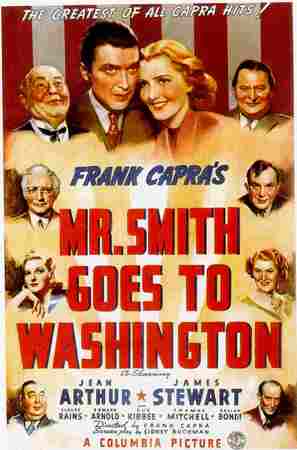Back up: There's no discussion of the U.S. Senate or the filibuster by Alexander Hamilton in Federalist 22. Hamilton's wrapping up a long discussion of why the Article of Confederation are a bad way to run the United States -- and while he touches on a few topics here, he spends most of this essay talking about one particular evil: Under the Articles, it's all too easy for a minority of states with a minority of the U.S. population to obstruct the will of the majority.
And what becomes clear is this: If the pre-Constitution U.S. government was unworkable because of such problems, well then: Today's U.S. government is unworkable.
Under the Articles, see, each state -- no matter how thickly or thinly populated -- had an equal voice in the national governance. What's more, it took the consent of two-thirds of the states to pass major legislation: In an era where the United States comprised just 13 states, that meant that five states could block action.
And that, Hamilton huffed, was no way to run a republic.
Its operation contradicts the fundamental maxim of republican government, which requires that the sense of the majority should prevail. Sophistry may reply, that sovereigns are equal, and that a majority of the votes of the States will be a majority of confederated America. But this kind of logical legerdemain will never counteract the plain suggestions of justice and common-sense. It may happen that this majority of States is a small minority of the people of America;3 and two thirds of the people of America could not long be persuaded, upon the credit of artificial distinctions and syllogistic subtleties, to submit their interests to the management and disposal of one third.He adds later:
The necessity of unanimity in public bodies, or of something approaching towards it, has been founded upon a supposition that it would contribute to security. But its real operation is to embarrass the administration, to destroy the energy of the government, and to substitute the pleasure, caprice, or artifices of an insignificant, turbulent, or corrupt junto, to the regular deliberations and decisions of a respectable majority. ... When the concurrence of a large number is required by the Constitution to the doing of any national act, we are apt to rest satisfied that all is safe, because nothing improper will be likely to be done, but we forget how much good may be prevented, and how much ill may be produced, by the power of hindering the doing what may be necessary, and of keeping affairs in the same unfavorable posture in which they may happen to stand at particular periods.Here's the thing: Hamilton's critique of the Articles of Confederation is precisely applicable to the United States Senate.
Equal representation for each state, regardless of state size? Montana and New York both have two senators each, even though the population of Montana wouldn't even fill out Manhattan.
And a supermajority requirement for major legislation? That's pretty much the case in the Senate, where 60 votes are required to break a filibuster -- and a filibuster is brought, by one account, against 70 percent of all legislation.
George Will, who likes the filibuster, did the math in February after Scott Brown's election to the Senate:
Liberals fret: 41 senators from the 21 smallest states, with barely 10 percent of the population, could block a bill. But Matthew Franck of Radford University counters that if cloture were blocked by 41 senators from the 21 largest states, the 41 would represent 77.4 percent of the nation's population. Anyway, senators are never so tidily sorted, so consider today's health impasse: The 59 Democratic senators come from 36 states containing 74.9 percent of the population, while the 41 Republicans come from 27 states -- a majority -- containing 48.7 percent. (Thirteen states have senators from each party.)Enjoyable how Will counts the number of states as a majority, and not the number of voters. As the Senate is currently constructed, though, the minority -- both in the number of senators and in the amount of population they represent -- routinely frustrates the will of the majority.
And Hamilton likened this state of affairs to "poison."
Should he have known that his critique would also be a problem under the new Constitution? Kinda, maybe. After all, the Senate was always proportioned to give each state an equal say. And since any legislation that would pass Congress would have to pass the Senate, it was always going to be the case that more-populated states would be proportionally less powerful in the national governance.
Where Hamilton maybe gets a pass: The filibuster isn't written into the Constitution. It's part of Senate rules, which the Senate itself adopts. Every few years there's talk of abolishing the filibuster, but whoever is in the minority -- sometimes it's Democrats and sometimes its Republicans -- usually starts waxing eloquent about the rights of the minority, and nothing ever comes of it.
And I wonder: Why don't they bring up Hamilton's critique of the Articles of Confederation? And why aren't conservatives like Will -- who seem to think they're more faithful than thou on matters of fidelity to the Constitution and the Founders -- the loudest voices on this? True, Hamilton wasn't directly criticizing today's U.S. Senate, but that doesn't matter. The state of affairs he describes is exactly the same.











